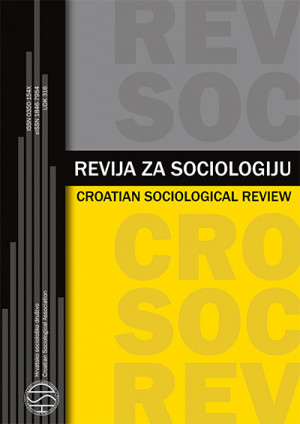Roditeljske srednjoškolske aspiracije za djecu iz perspektive učenika pri kraju osnovnog obrazovanja
Parental Aspirations for Their Children's Secondary Education from the Perspective of Pupils at the End of Elementary Education
Author(s): Zrinka Ristić Dedić, Boris JokićSubject(s): School education, Sociology of Education
Published by: Hrvatsko sociološko društvo
Keywords: parental educational aspirations; upper secondary educational aspirations; parental educational status; pupil's educational achievement;
Summary/Abstract: Parental secondary educational aspirations are the ambitions and goals that parents have for their children's secondary education. In the Croatian context, they have not been researched so far, despite contributing significantly to pupils' aspirations and school success and being a predictor of parental involvement in children's education. This paper aims to research the nature and determinants of parental secondary educational aspirations from the perspective of pupils and describe the patterns of communication and interaction between parents and children related to aspirations and the transition from elementary to secondary school. Parental secondary educational aspirations were examined from the pupils' perspective by a mixed-model study involving a survey of 1,031 8th-grade pupils from elementary schools in Zagreb and semi-structured interviews with 29 pupils at the end of the first semester of the 8th grade. The quantitative part of the research indicates that pupils' expected school achievement and parental educational status were significant predictors of parental secondary educational aspirations, while the effect of pupils' gender was not significant. The qualitative part of the research points to a congruence between pupils' and parental aspirations and the substantial involvement of parents in the process of selection of secondary educational options. In families where parents have different educational statuses, the patterns of communication and interaction regarding aspirations and secondary school choice varied to some extent and were related to different valuation of grammar schools and vocational education in these families
Journal: Revija za sociologiju
- Issue Year: 50/2020
- Issue No: 2
- Page Range: 161-188
- Page Count: 28
- Language: Croatian

